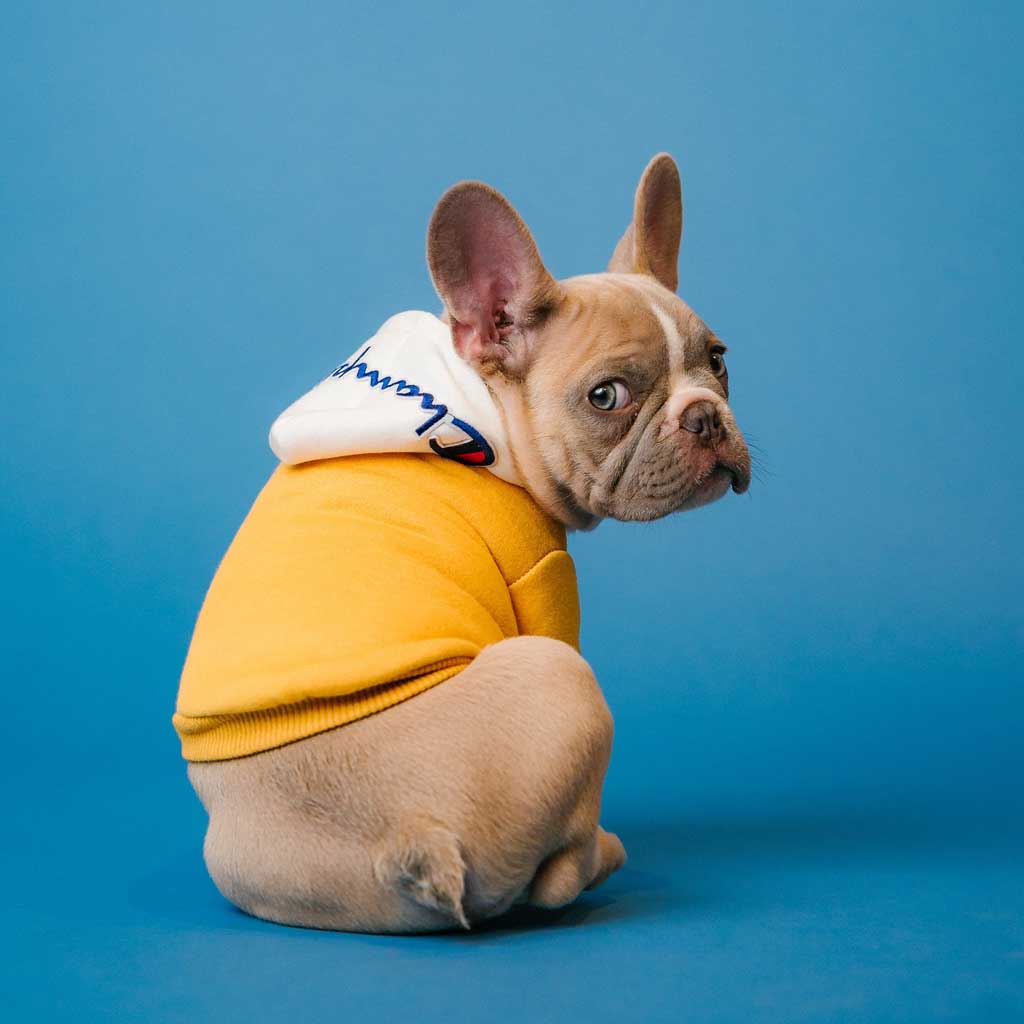Oh, the cute things dogs do! They jump, they wag, the get raging cases of the zoomies and melt your heart with those big, pleading eyes. But they also have a habit that is, well, less appealing: licking their hind ends. Like us, you may have always wondered what this tendency is all about, so we did our research to find out all the details.
Yes, there is never a great time or place for butt-licking, and it can tend to make people cringe or elicit a comment about how disgusting canines can be. However, the truth is that butt-licking is an entirely normal dog behavior. It even serves some important purposes.
How Licking “that area” is beneficial
Believe it or not, butt-licking serves some helpful purposes for your pup when it comes to grooming. Your dog uses their tongue to clean various areas of the body, including paws and hindquarters, on a regular basis. This self-care regimen assists in the removal of debris, discharge and dirt. Because your dog’s saliva has anti-bacterial properties, it also is beneficial in cleaning wounds or irritations.
How Often Should Dogs Lick Their Butts?
Now that we have eased your mind and removed any doubts that this behavior is normal, you may still be wondering how much is too much. It’s one thing for your dog’s tongue to flick around their hindquarters occasionally, but is there a point when you should be concerned?
As an attentive pet parent, you have a good idea about what is normal for your dog and what is above and beyond the typical. This definitely applies to butt-licking. If you start to notice that your pup is engaging in this activity a lot more than usual, the reason may have less to do with boredom or “because they can” and more with an actual medical issue that needs to be addressed.
Excessive licking of a dog’s private parts can be caused by severe inflammation or some other sort of medical issue. If you become concerned, your first step should be to examine the area carefully to check for debris, feces or hair mats.
Causes of Frequent Licking
There are a number of reasons for dogs to focus their licking on their hindquarters. These include:
- Grooming an area to remove dirt or debris.
- Relieving discomfort.
- Self-expressing of anal glands.
- Due to a bacterial infection. In many instances, bacteria can get into a dog’s anal sacs, causing discomfort that the animal attempts to relieve by licking. If left untreated by a veterinarian, impacted anal glands can rupture, requiring surgical removal. Your veterinarian can easily express the sacs and treat the infection.
- Allergies. Exposure to a food or substance that a dog is allergic to can lead to discomfort. If they sit on something that irritates their skin, they often try to soothe the situation with licking. In these cases, it is best to identify and remove the allergen that caused the problem. Alternatively, there are many effective medications and shampoos on the market that can minimize or eliminate the symptoms altogether.
- Urinary tract infections. Most commonly, dogs develop urinary tract infections when bacteria from feces or debris gets into the urethral opening.
- Parasites. Organisms such as fleas, ticks and mites as well as internal invaders like tapeworms cause scooting behaviors as well as licking under the tail. Fleas can make your pup particularly itchy, especially if your pup is allergic to them, because they love to congregate around the hind area. Doing your best to control fleas on the dog as well as in the environment – including killing the eggs – is the best way to alleviate the itching.
- Cancer. Your dog may have developed a tumor in or around its anus that is causing the irritation and licking behaviors. Treatments for anal cancer vary according to the type, stage and size of the tumor and can involve interventions such as chemotherapy, immunomodulation and/or radiation.
How to Combat Excessive Butt-Licking
Start by getting the rear end clean with canine shampoo and water, making sure to thoroughly rinse the area to avoid any added irritation from leftover soap. Don’t use diaper ointments or creams designed for humans as they can cause stomach upset or other symptoms. Also avoid over-the-counter medications that have not been approved by your vet.
Then give your pup a nice brushing. If the area still looks red or inflamed and your dog won’t stop licking it, the time has come to make an appointment with your vet. Your pup’s medical team may run tests to get more information on your dog’s overall health and will then be in a better position to make effective recommendations.
Butt-licking isn’t necessarily a hit in polite company, but it’s normal in most cases. If your dog’s behaviors suddenly change or become obsessive and non-stop, discuss your concerns with your vet. Together you can come up with the next steps that will lead to your furry friend’s restored comfort and health.

